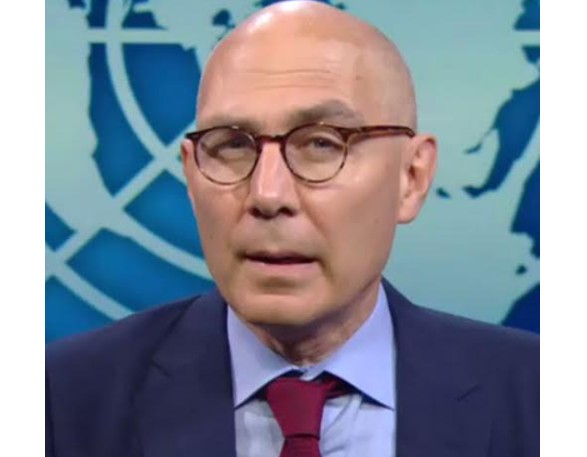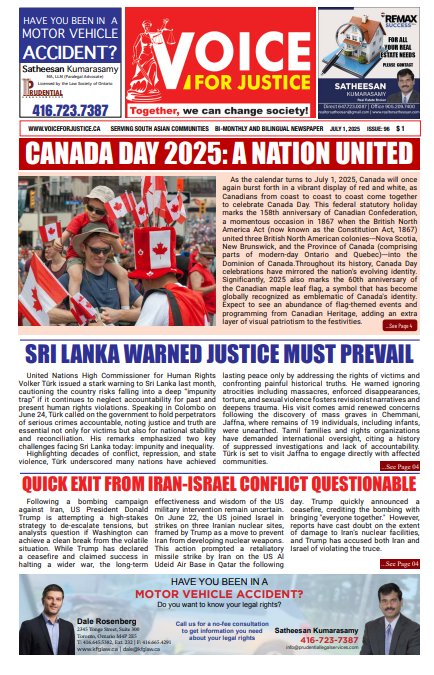UN Human Rights Chief Speaks Candidly on Sri Lanka Visit
15-Jul-2025.

"During my recent visits to countries including Sri Lanka, the necessity to prioritize accountability for severe violations and to ensure truth and justice for the families of the forcibly disappeared became evident", stated Volker Türk, the United Nations High Commissioner for Human Rights.
He added that experience has shown that when repression against communities goes unaddressed and civic space for free expression is closed, conflicts inevitably arise.
Speaking at the 27th annual Symi Symposium held in Greece, the High Commissioner remarked that:
“In today’s world—facing inter-state conflicts, deepening divisions, climate change threats, and inequalities—only through trust can we anchor human rights firmly.”
He continued: “Human rights are a universal, legally grounded agenda for all people, everywhere. In the midst of confusion created by conflicts and violence, human rights provide clarity. They can guide us through the growing crises of climate change and the threats arising from new technologies.”
He expressed concern that armed conflicts are now underway in more than 120 countries worldwide—including Sudan, Gaza, Ukraine, and Myanmar—resulting in civilian deaths, sexual violence, displacement, hunger, and lack of access to life-saving humanitarian aid.
Highlighting that war constitutes a comprehensive violation of human rights, he stated that even so, human rights can guide societies out of conflict through accountability, mediation, and peacebuilding.
He further emphasized: “During my recent visits to Bangladesh, Sri Lanka, Serbia, and Syria, it became clear that prioritizing accountability for severe violations and ensuring truth and justice for the families of the forcibly disappeared is essential. Human rights also help prevent conflicts. When oppression against communities is ignored and civic space is suppressed, we have seen from our past work that conflict ensues. Therefore, we must invest far more in preventing violence and building peace.”







